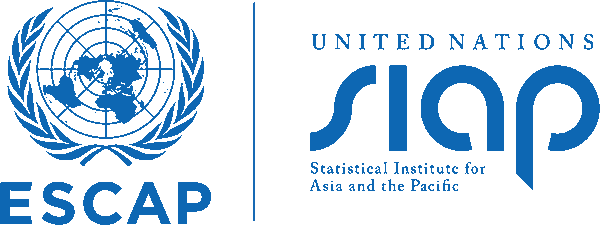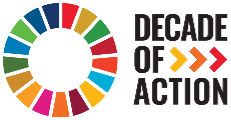
Regional Workshop on Measuring the Informal Sector and the Non-Observed Economy
In person

04 to 07 October 2015
Tehran , Iran (the Islamic Republic of)
Overview
The Regional Workshop on Measuring the Informal Sector and Non-observed Economy will be held by the Statistical Institute for Asia and the Pacific (SIAP), a regional institution of the United Nations Economic and Social Commission for Asia and the Pacific (ESCAP), from 4 to 7 October 2015 in Tehran, Islamic Republic of Iran. The workshop will be conducted in collaboration with the Economic Cooperation Organization (ECO) and the Statistical Centre of Iran (SCI), Government of the Islamic Republic of Iran.
The training workshop is a further step in supporting countries develop effective techniques to accurately measure the size of their economies. It builds on a similar training course jointly undertaken by ECO, the United Nations Statistics Division (UNSD), the United Nations Economic and Social Commission for Asia and the Pacific and the Pacific (ESCAP) and the SCI. This training course also supports prevailing national, regional and international programmes to improve coverage and exhaustiveness of economic statistics to inform evidence based decision making.
The course is designed to enhance the capacity of participating organizations to: a) provide new knowledge about definition, concepts, scope and classification of informal Sector (non-observed economy); and b) discuss methods for identifying and estimation of value added for the informal and non-observed economic activities.
Target participants of the course are middle-to senior- level statisticians compiling national accounts in national statistical agencies who have comprehensive knowledge of the theoretical framework of national accounts at least at the level of the SIAP Intermediate-Level e-Learning Course on SNA 2008.
Participants from all of ECO Member States are expected to participate in the workshop.
Objectives
The main objective of this training is to enhance the capacity of participating organizations to take practical steps in improving their measurement of the contribution to the economy of the informal sector and non-observed economy.
Provisional Programme (as of 15 September 2015)
| Course Materials [Materials will be posted on this page as they become available] | |
|---|---|
Module One-Key Changes in the SNA 2008 Objectives: (a)to illustrate key differences between the SNA2008 and SNA1993; (b) to highlight implications of adopting SNA2008 on estimates of GDP series. | |
| Session 1.1-How are countries doing? | |
| Session 1.2-Main Changes in 2008 SNA- Part I | |
| Session 1.3-Main Changes in 2008 SNA- Part II | |
| Session 1.4- 2008 SNA Changes impact on GDP estimates | |
Module Two- Conceptual Framework for the Non-Observed Economy Objectives: (a) to update knowledge on statistical aspects of the definition, concepts, scope and classifications of the informal sector and; (b) to discuss frameworks for classifying the non-observed economy. | |
| Session 2.1: What is the “non-observed” economy? -An overview of classification frameworks | |
| Session 2.2- What is the “informal economy”?-An Overview of Implications on Statistical Measurement | |
| Session 2.3- International statistical definition: The Informal Sector | |
| Session 2.4-The informal sector and the 2008 SNA framework | |
| Session 2.5- International statistical definition: Informal Employment and Employment in the Informal Sector | |
| Session 2.6- Data sources for producing statistics on the informal sector | |
| Session 2.7-Data sources for informal sector GDP estimation: Establishment Surveys, Mixed surveys, with focus on 1-2 surveys | |
Module 3 -Measurement and estimation methods to achieve exhaustiveness Objectives:(a) to identify improvements in compilation and estimation procedures of the non-observed and informal economies to ensure exhaustiveness of GDP estimates | |
| Session 3.1 – Production Approach-General Methods | |
| Session 3.2- Production Approach- Specific Methods | |
| Session 3.3-Expenditure Approach—Estimation methods | |
| Session 3.4 -Data source reconciliation- Identifying estimation gaps | |
Module 4: Data Quality Issues Objective: a) to review quality concepts and selected quality issues in measuring the informal sector and the non-observed economy; b) to discuss the uses of national quality assurance frameworks and data quality assessment frameworks for assuring and assessing quality of national accounts. | |
| Session 4.1a- Quality and Quality Frameworks | |
| Session 4.1b- Data Quality Assessment for National Accounts | |
Module Five : Way forward Objective: Develop a set of actions/activities to improve coverage of GDP estimates and quality of national accounts in light of the non-observed economy and the informal sector | |
| Session 5.1- Challenges in Improving Measurement of the Informal Economy & Next Steps | |
| Country Reports & Country Presentations | ||
|---|---|---|
| Afghanistan | ||
| Turkey | ||
| Tajikistan | ||
